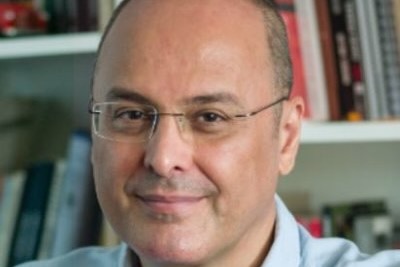After seven years behind bars, Turkish journalist Füsun Erdoğan was still not released when she appeared in an Istanbul court on Wednesday. However, international and Turkish media are now really turning the spotlight on the case of the dozens of imprisoned Turkish journalists.
By Esben Ørberg, EFJ representative
After seven years behind bars, Turkish journalist Füsun Erdoğan was still not released when she appeared in an Istanbul court on Wednesday. However, international and Turkish media are now really turning the spotlight on the case of the dozens of imprisoned Turkish journalists. Pressure, from the IFJ/EFJ and others, is growing against the regime’s treatment of journalists – including on the square in front of Europe’s largest courthouse.
Twenty-five relatives, friends, and human rights activists form a wall in front of the courthouse. They are carrying signs and wearing vests emblazoned with the words ‘Waiting for Justice’. The peaceful – and completely silent – demonstration is filmed by the BBC, Dutch television and a number of Turkish media. The message of the human wall is clear: the fifty imprisoned Turkish journalists must be released. There is a special focus on Füsun Erdoğan, the journalist who is among those imprisoned the longest in Turkey. She has been incarcerated since 8 September 2006, when she was dragged from the street in Izmir and shoved into a car.
We are standing in front of Europe’s largest courthouse, in Çağlayan, a suburb of Istanbul. 32,000 square meters of shiny marble. This is where journalists are repeatedly being dragged in front of a prosecutor, who finds all kinds of tricks to keep the case going. In Füsun Erdoğan’s case, for example, the prosecutor has changed seven times. At one point, in 2010, a prosecutor was on the verge of releasing her – but then he was transferred.
Today is the day that her crime is due to be appraised. The original prosecutor demanded a life sentence because he felt that Füsun Erdoğan was a leading figure in the Marxist MLKP party was proven. She says, however, that all the evidence against her was planted by the police.
Today’s media turnout suggests that the world is waking up to the wrongs being committed against critical journalists. The BBC has devoted a major story to it; Dutch TV broadcast a half-hour segment last night on the case of Füsun Erdoğan and the other journalists; a number of Green Party MEPs are coming to Istanbul; the Danish Union of Journalists will meet in a few weeks’ time with the Danish Minister of Foreign Affairs to discuss the imprisoned journalists; and the chairperson of the European Federation of Journalists, Mogens Blicher Bjerregård, from the podium of the International Publishers’ Association in Istanbul today thundered against the conditions under which the Turkish press is working. Expressions of sympathy are pouring in from around the world. Maybe the international pressure will have an effect on the Turkish government?
We just managed to get into the courtroom and occupy the last vacant seats. There are probably 200 people, including 30 guards, in the courtroom, which is the size of a medium-sized detached house of 150 square meters.
All at once, Füsun Erdoğan is allowed to speak. She begins by thanking all her supporters and continues:
“I have always been open about my socialist opinions and my criticism of the government. But I am a journalist, not a political activist. I have been the victim of a set-up. The evidence against me is worthless. The only positive aspect is that the Turkish regime is no longer murdering journalists – now they make do with legal murder.”
One of the prosecutors has fallen asleep. His head rolls back and forth until an assistant discreetly rouses him.
There are also many touching moments, when there is eye contact between relatives and the accused.
The hall also holds eight other accused persons. Common to all of them, including Füsun Erdoğan, is that they have all been charged with being active and leading members of the banned ‘terrorist organisation’, the MLKP. A student who gives a striking defence speech is supposed to have encouraged terrorism at various universities. A warehouse worker is supposed to have been a committee member, and Füsun Erdoğan herself is accused of having channelled money from the radio station, Özgür Radio (“Free Radio”), which she founded, to support the subversive work of the organisation.
The court adjourns for a recess, and Füsun Erdoğan’s son gets up to give his mother a hug. Both dissolve into tears, and even the chairperson of the Union of Journalists in Turkey (TGS), Ercan İpekçi, is deeply moved.
Gradually it dawns on the spectators that there will be no decision today. Now they are saying Monday 4 November. Ercan İpekçi slips out into the corridor. He looks tired. No wonder – he closely follows all the court cases against the journalists.
“It’s depressing to see how the system works. I know nothing about the MLKP. Perhaps there are criminals among them. Maybe they have hidden weapons. Maybe they have used them. I’ve no idea. But that has nothing to do with Füsun Erdoğan. She is a journalist!” the otherwise very patient Ercan Epekci almost shouts, and continues:
“Füsun has always been critical, especially about police methods. And she is famous. Many people listen to her. That is what is harming her now. Now they just want to get rid of her, because she will not toe the line. She wants to be allowed to express herself freely as a journalist. And she wants to be allowed to express herself freely as a socialist. Is that too much to ask?”


